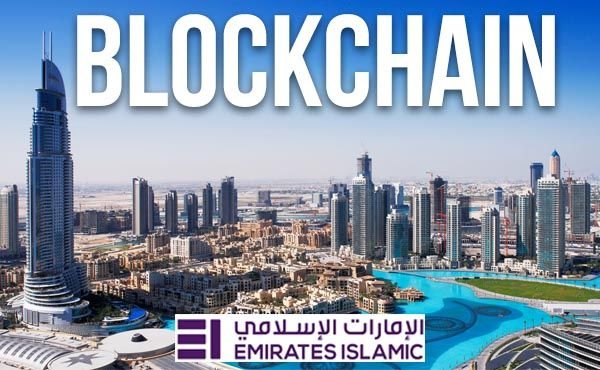
Major Bank in Dubai Integrates Blockchain to Prevent Cheque Fraud
Emirates Islamic Bank, one of the largest commercial banks in the United Arab Emirates (UAE), announced the integration of blockchain technology to prevent cheque fraud.
On June 11, Suhail Bin Tarraf, the chief operating officer of Emirates Islamic, revealed that the bank’s development team has built a cheque fraud prevention system on top of the blockchain to enhance security measures of the bank’s operations.
Essentially, the bank has registered each cheque to the decentralized ledger of the blockchain, creating unique timestamps and cryptographic proof for each cheque. According to Reuters, each cheque that are issued under a system called Cheque Chain will have a unique QR code and a string of 20 random characters which will be picked up by the bank’s blockchain system and autonomously verify and approve the cheque.
Emphasizing the rapidly growing blockchain sector in the UAE, Bin Tarraf stated:
"Blockchain has the potential to significantly increase security and protection in banking transactions and we are delighted to be among the first in the UAE to utilise this new technology.”
Over the past two years, leading banks and financial institutions have struggled to find and implement efficient use cases of blockchain technology in the traditional finance sector. Some banks have been collaborating with R3CEV, a consortium of financial institutions that have raised hundreds of millions of dollars since its launch in 2014. Banks in other regions such as Japan have been working with blockchain companies such as Ripple to cut operating costs and transaction fees.
Yet, banks have failed to prove the commercial use case of blockchain and its potential in the finance industry. Bitcoin and cryptocurrency experts have criticized the efforts of banks due to the lack of clarity and focus on their projects. The definition of the term blockchain has transformed since multi-billion corporations have started to develop the technology. From being an open, decentralized and transparent ledger, the blockchain has become a general term for closed and private ledgers.
In the case of Emirates Islamic Bank, the bank’s development team and its COO Bin Tarraf have not disclosed the intricacies and technical specification of the blockchain the bank is using to secure and protect cheques.
Still, the effort of the Emirates Islamic Bank should be considered as an optimistic outlook on the UAE and Dubai fintech and blockchain sectors.
Tarraf explained:
"We anticipate that Cheque Chain will dramatically reduce cheque frauds in this market helping us provide our customers greater peace of mind and security. Emirates Islamic is making deeper investments in digital technologies to enhance and improve the banking experience, as part of our commitment to supporting the vision of Vice President, Prime Minister and Ruler of Dubai, His Highness Sheikh Mohammed bin Rashid Al Maktoum, in making Dubai the global capital of Islamic economy.”
Interestingly, the application of blockchain technology the Emirates Islamic Bank is looking into is one of the few applications which the robust bitcoin network and protocol can support. Most recently, MIT researchers released a study on using bitcoin to prevent identity theft and encryption attacks.
Although the bitcoin blockchain lack the flexibility of the Ethereum network, its security measures and robust network makes it an ideal protocol for fraud prevention and data encryption.
Source:
https://goo.gl/1wSk8Z
Also Check out:
https://goo.gl/3NFskm
https://goo.gl/AuEb7M
https://goo.gl/VXJTcL
